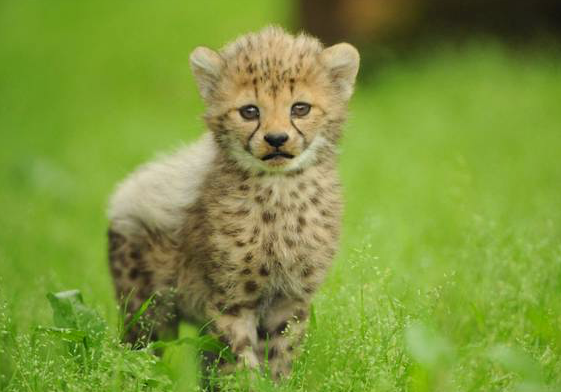A WILDLIFE PARK in Co. Cork has become the very first major attraction in Ireland to become 'autism-friendly' after it received an accreditation from AsIAm, Ireland’s National Autism Charity.
Fota Wildlife Park , located on Fota Island, near Carrigtwohill, has spent many months training its staff and upgrading its facilities to better assist autistic people and their families as they visit the centre.
They've made what they believe to be "a major step" in improving the experience for those visiting with autism, by making changes such as installing quiet areas, offering complimentary earbuds and generally making efforts to communicate activities and the order of the day better and more clearly to everyone in the park.
These small differences can really have a significant impact on those with autism, as understanding the sensory environment and predicting what will happen next often pose challenges to those with the disorder.
 A Cheetah cub at Fota Wildlife Park - Credit: Irish Independent
A Cheetah cub at Fota Wildlife Park - Credit: Irish IndependentRoisin FitzGerald, Marketing Manager of Fota Wildlife Park said: "AsIAm have provided training for our core public-facing staff and have performed an environmental evaluation and audited the 100-acre visitor attraction.
"We've provided extremely helpful, insightful and practical solutions and suggestions in improving the quality of the visit for our visitors in the autism community -such as creating a sensory map, providing complimentary earbuds, inclusion of a social story and soundbites on the website and training in recognising the needs of visitors who may experience sensory issues”.
The park is home to a great number of impressive and endangered animal species including tigers, asiatic lions, rhinos and cheetahs. They've over 50 bird species, as well as other African giants such as giraffes, zebras and ostriches, and they've even got a number of kangaroos and wallabies roaming freely around the grounds too.
One of the best attractions there is 'the cheetah run' where they suspend food 10ft above the ground on a wire which travels across the park at around 65kph, with the cheetahs chasing after it.
This is done not only to entertain the visitors, but as a form of behavioural enrichment. In the wild, cheetahs would naturally have to reach these speeds in order to catch their food, so the 'cheetah run' allows them to feel more at home.

